│By Phil Virta, Senior Acquisitions Editor│
Queer history is full of groups and individuals that took a stand against injustices, fought to change discriminatory laws, advocated for acceptance, and spoke out for those who might otherwise remain marginalized. Studying this history can inspire and educate us as we face ongoing challenges in society such as homophobia, transphobia, attacks on women’s rights, and a willingness to eliminate any mention of diversity, equity, and inclusion.
Archives of Sexuality and Gender: Community and Identity in North America (ASG VI) offers interesting perspectives on society, sexual identity, community building, and gender issues. It presents a history of North American society with materials that cover activism, social justice issues, disabilities, women’s rights, alternative sexualities, sexuality and religion, and ethnic communities. The collections detail how identities developed in different social conditions, and how communities grew around dedicated, sometimes courageous, individuals and organized groups.
In this venture Gale Primary Sources has partnered with the ArQuives, Canada’s LGBTQ2+ Archives; the GLBT Historical Society; the Elihu Burritt Library (Central Connecticut State University); and Colegio de México, which represents Canada, the United States, and Mexico. This archive comprises 28 collections that provide a personal historical perspective, helping researchers get to know the individuals and groups involved.
Highlights from the Collections
The Monograph Collection from the ArQuives (Toronto) although technically a pamphlet collection, is full of ephemera and grey literature. There are nearly 4,000 items covering a range of subjects in sexuality and gender studies, which makes it a wonderful collection for browsing.
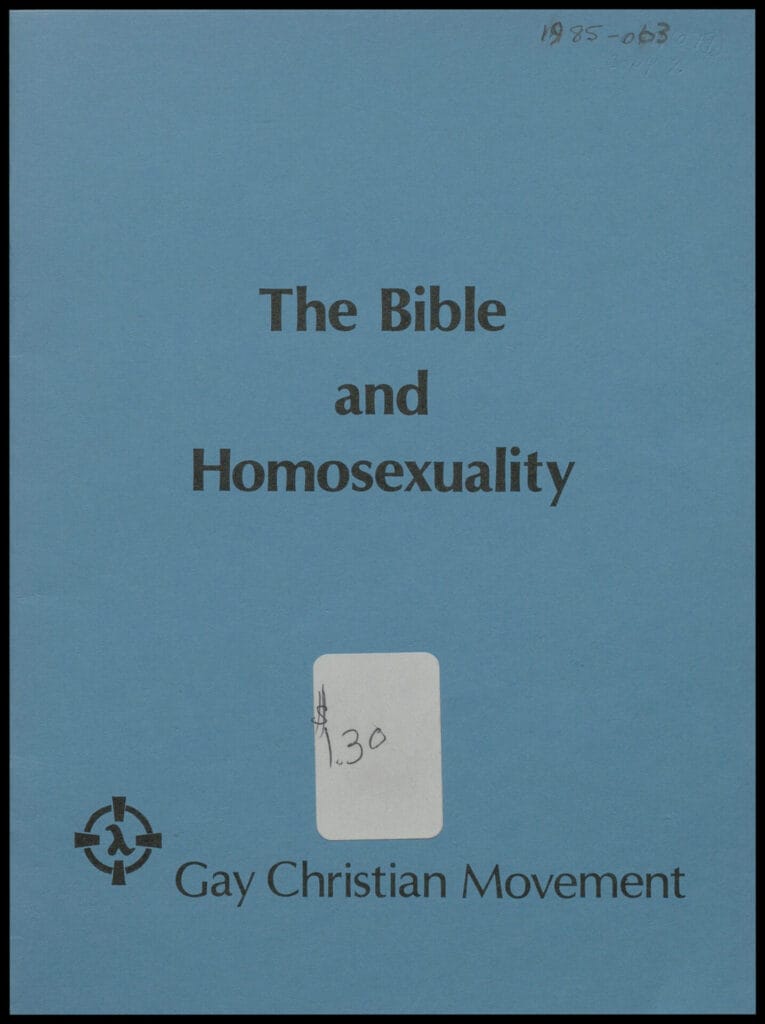
While many of the items come from North America, you will also encounter materials from all around the globe. You can explore titles such as:
- What it’s like to be a teenage homosexual
- Employment of mentally deficient boys and girls
- Motherhood, lesbianism, and child custody
- Sex law reform in an international perspective: England and Wales and Canada
- Sin, Crime, Sickness or Alternative Life Style? A Jewish Approach to Homosexuality
- Getting through the hard times: A queer friendly mental wellbeing resource for South Asian communities
- The agony of nurturing the spirit: a mother’s recount of raising a transgendered child
The Canadian Vertical Files from The ArQuives (Toronto) consists of published ephemeral materials relating to Canadian events, people, and organizations. Records in the Canadian Vertical Files were often collected as items that were historically discarded. Vertical files can be conceptualized as good jumping-off points for researchers; like an antiquated Wikipedia, they provide snippets of information. They are important because this material is often forgotten.
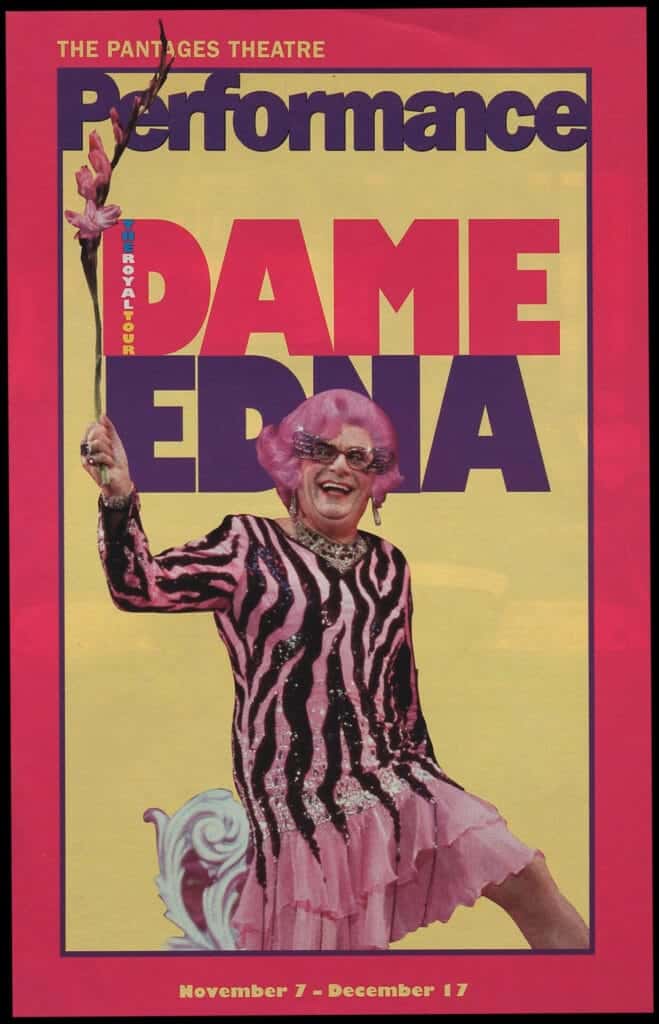
The subject matter varies widely, representing a diverse and fascinating cross-section of Canadian society. Some examples from the Vertical Files include:
- Indian Residential Schools
- 2-Spirited People of the First Nations
- Alcooliques Anonymes au Quebec
- Bearback Calgary Men’s Social Association
- Canadian Organization for the Rights of Prostitutes
- Centro Para Gente de Habla Hispana – Programa de prevencion y Consejeria de VIH/SIDA
- End Child Prostitution, Pornography, and Trafficking
- Female to Male Peer Support Group
- Gay Vietnamese Alliance
- Iranian Queer Organization
- Keshet Shalom
- Nova Scotia Home for Colored Children
- Older Lesbians and Gays Association
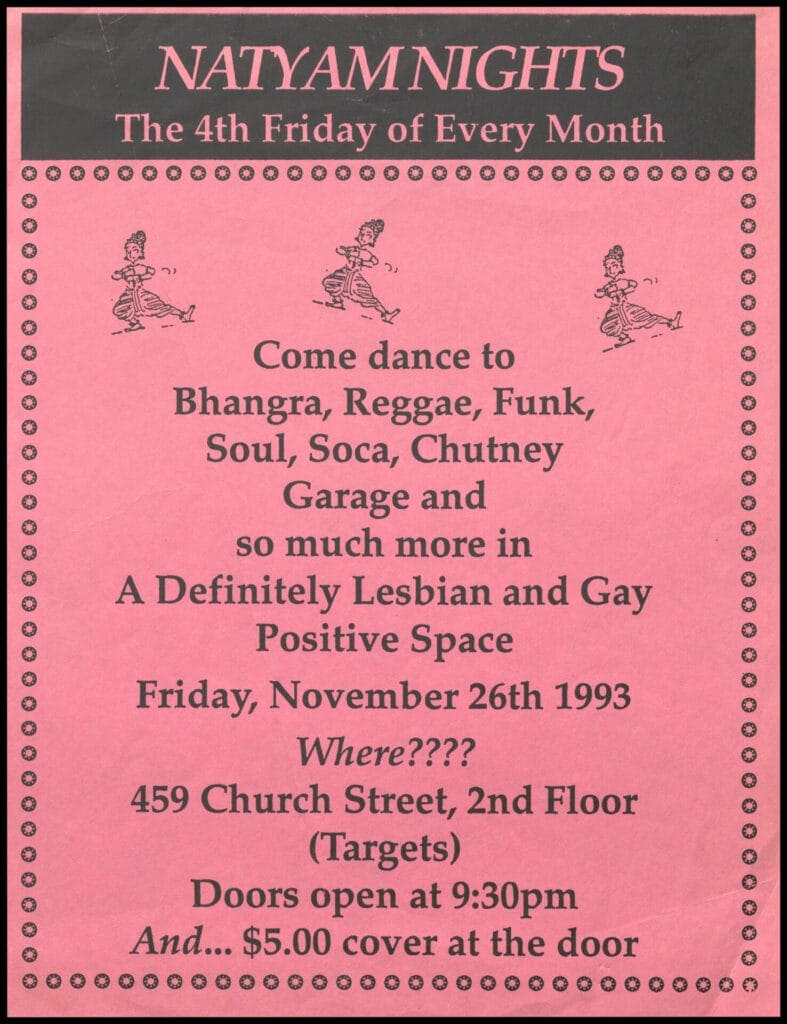
Collections from the GLBT Historical Society
The GLBT Historical Society is an international leader in LGBTQ history. Based in San Francisco, their collections provide coverage not only of the important Queer community of the “City by the Bay”, but individuals and communities across the United States.
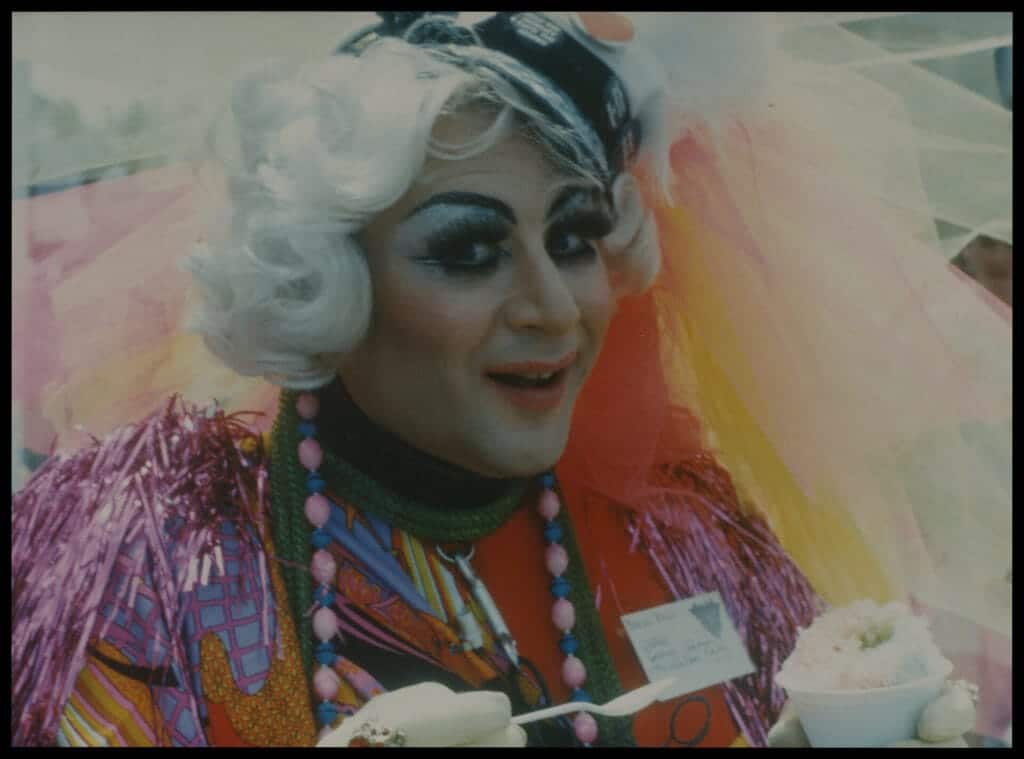
The 22 collections selected for this archive cover many aspects of diversity in society including people with disabilities, ethnic communities, sex workers, Queer communities, and transgender people. A few examples include:
- The papers of disabled activist, writer, and performer Judy Freespirit, co-author of the 1973 Fat Liberation Manifesto.
- Activist and Historian Eric Garber who wrote extensively about LGBT people, with notes and research from his presentation T’Ain’t Nobody’s Bizness: Homosexuality in Harlem in the 1920s
- Anthropologist and Sexologist Clark Taylor who documented the gay community in Mexico in the 1970s; his field notes include rich interviews with Mexican gay men.
- FTM (Female-to-Male) International Records – the largest and oldest organization serving the transmasculine community and their allies.
- Political activist Gilbert Block, one of the Sisters of Perpetual Indulgence who was also known as Sister Sadie, Sadie, the Rabbi Lady.
- Gay and transgender activist Louis Graydon Sullivan who was notable as a community organizer and lay historian. Sullivan’s diaries chronicle his social and medical transition.
- Jiro Onuma, a gay Japanese American. A small collection but fascinating for its glimpses of the lives of LGBTQ Japanese Americans. Onuma’s few World War II pictures might be the only known photographs of adult gay Issei in the American concentration camps.
- The papers of Tamara Ching, a trans woman, advocate, activist and former sex worker who has advocated for the transgender, HIV/AIDS and sex-work communities in San Francisco for decades.
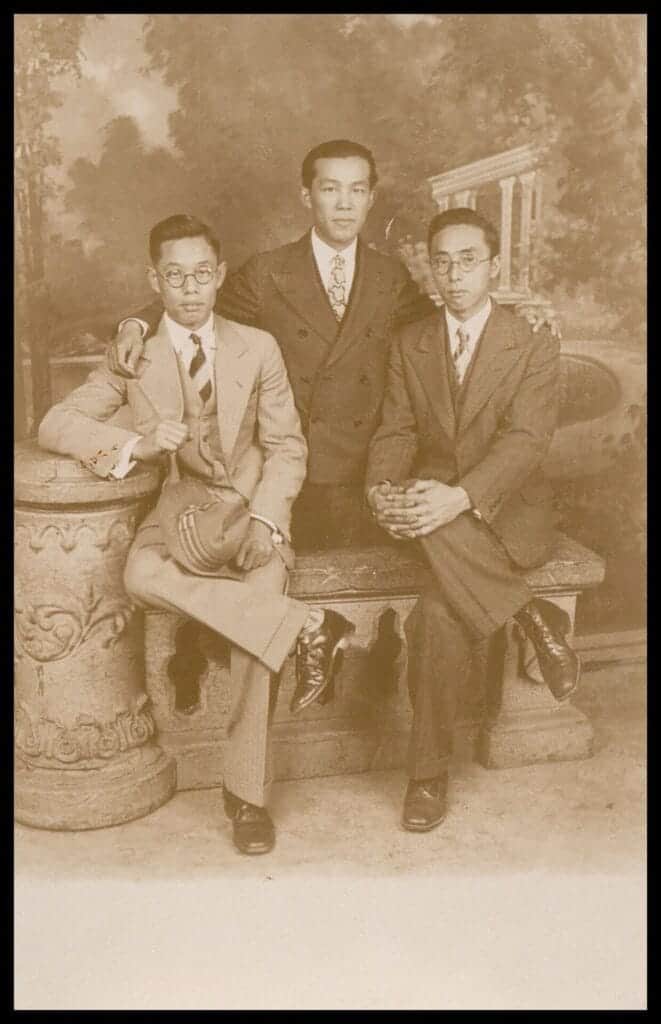
Collections from the Elihu Burritt Library, Central Connecticut State University
The Elihu Burritt Library serves the research needs of CCSU and their GLBTQ Archives offer a diverse social history. The two collections presented here offer perspectives on sexuality and religion, obstacles faced by the Queer community, and their changing sense of identity.
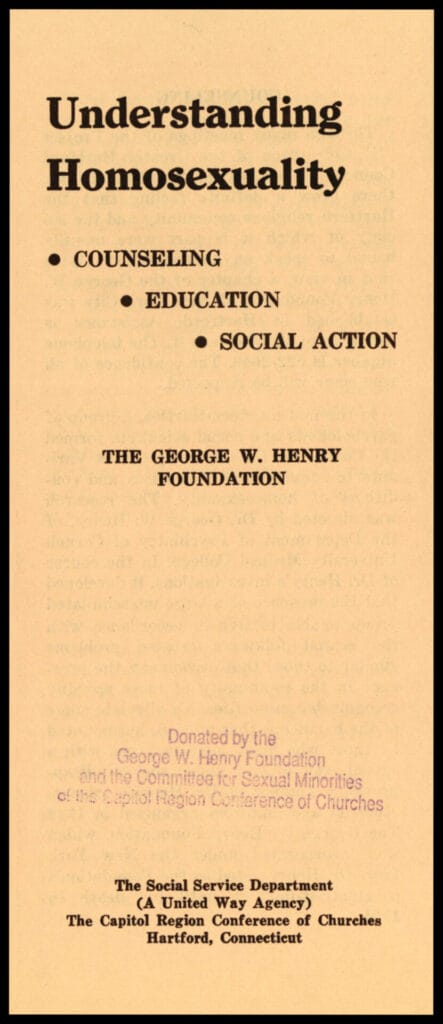
George W. Henry/Canon Clinton Jones Collection, 1933-2006 is the papers of Canon Clinton Jones, an Episcopal priest in Connecticut, who spearheaded one of the first major LGBTQ+ advocacy organizations in the state. He revolutionized community care and inspired generations to come. During his lifetime, Canon Clinton Jones was a central figure in Connecticut’s LGBTQ+ community and a pioneer for compassionate care, queer visibility, and gender affirmation.
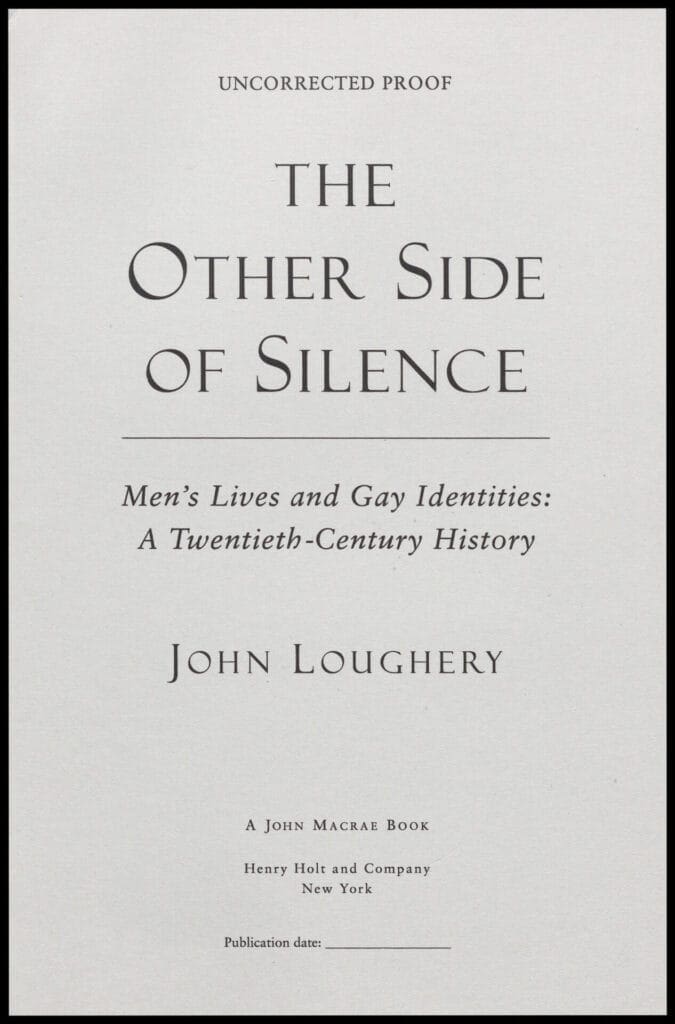
John Loughery Collection, 1934-2021 consists of materials assembled in writing The Other Side of Silence, Men’s Lives and Gay Identities, A Twentieth Century History, New York, Holt, 1999. Some of the collection’s highlights include:
- Transcriptions of interviews with gay activists as well as “coming out stories”.
- An extensive collection of playbills for gay themed plays or gay characters.
- Extensive material relating to Loughery’s other book: John Sloan: Painter and Rebel, New York, Holt, 1995.
Collections from El Colegio de México, Biblioteca Daniel Cosío Villegas
The Daniel Cosío Villegas Library of the College of Mexico (ColMex) publishes a variety of periodicals covering Mexican and Latin American social history, including gender and sexuality studies. ColMex also publishes a range of books on gender studies in Mexico and beyond, many with a particular focus on women’s rights and roles in society. The collection includes more than 70 books and four full runs of periodicals.
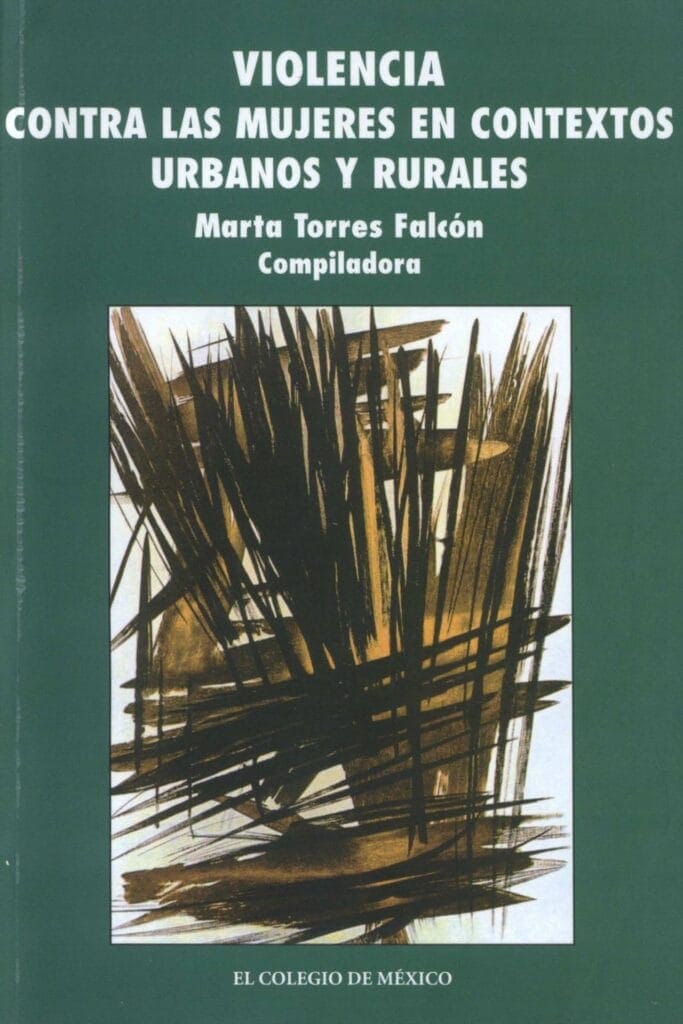
Libros de ColMex que tratan de Estudios de Género is a collection of books from the Colegio de México that deals with themes of gender, sexuality, culture, history, religion, and society in Mexico and Latin America. A sample of some of the titles indicates the variety of subject matter one will encounter:
- Salud reproductiva y condiciones de vida en México – Reproductive health and living conditions in Mexico
- Mujer que sabe soldar: transformaciones subjetivas en mujeres trabajadoras con ocupaciones feminizadas y masculinizadas en la Ciudad de México – Women who can weld – subjective transformations in working women with feminized and masculinized occupations in Mexico City
- Sexo y fe: Lecturas antropológicas de creencias sexuales y prácticas religiosas – Sex and faith: anthropological readings about sexual beliefs and religious practices
- El género en movimiento: Familias y migraciones – Gender in motion: families and migrations
- Género en contextos de pobreza – Gender in the context of poverty
Revistas de ColMex is four journals published by the Colegio de México that deal with themes of sociology, society, history, sexuality, and gender. They are:
- Estudios Sociológicos de El Colegio de México
- Historia Mexicana
- Estudios Demográficos y Urbanos
- Revista Interdisciplinaria de Estudios de Género de El Colegio de México
Each journal provides a fascinating look at Mexican and Latin American society and can help researchers explore the complex history of the region. A selection of articles highlights this:
- “Un Repertorio De Actos Rituales De Los Antiguos Nahuas.” Historia Mexicana, vol. 35, no. 3, Enero-Marzo 1986, pp. 373+ – A repertoire of ritual acts of the ancient Nahua
- “Género y educación en México.” Estudios Demográficos y Urbanos, vol. 15, no. 1, Enero-Abril, 2000, pp. 97+ – Gender and education in Mexico
- “Género, trabajo y exclusión social en México.” Estudios Demográficos y Urbanos, vol. 15, no. 1, Enero-Abril, 2000, pp. 11+ – Gender, work, and social exclusion in Mexico
- “Cambios en el papel económico de las mujeres entre las parejas mexicanas.” Estudios Demográficos y Urbanos, vol. 15, no. 1, Enero-Abril, 2000, pp. 65+ – Changes in the economic role of women among Mexican couples
Exploring Community and Identity
The Archives of Sexuality and Gender program was established to uncover hidden histories and give voice to the marginalized. With Community and Identity in North America, we get to examine history from a social perspective through a fantastic variety of experiences and individuals. Come explore!
If you enjoyed reading about Archives of Sexuality and Gender: Community and Identity in North America, check out these posts:
- Unpacking Queer Theory: An Investigation into the Methodology and the Importance of Gale Primary Sources
- Franco Stevens and the History of Curve Magazine
- Writing Sensitive Personal Histories
Blog post cover image citation:
Jiro Onuma amongst a group of Japanese-American internees at the Topaz concentration camp during WWII. Jiro Onuma Collection, GLBT Historical Society, Archives of Sexuality and Gender: Community and Identity in North America.


